2022 Symposium
2022 Symposium Presentors and Projects
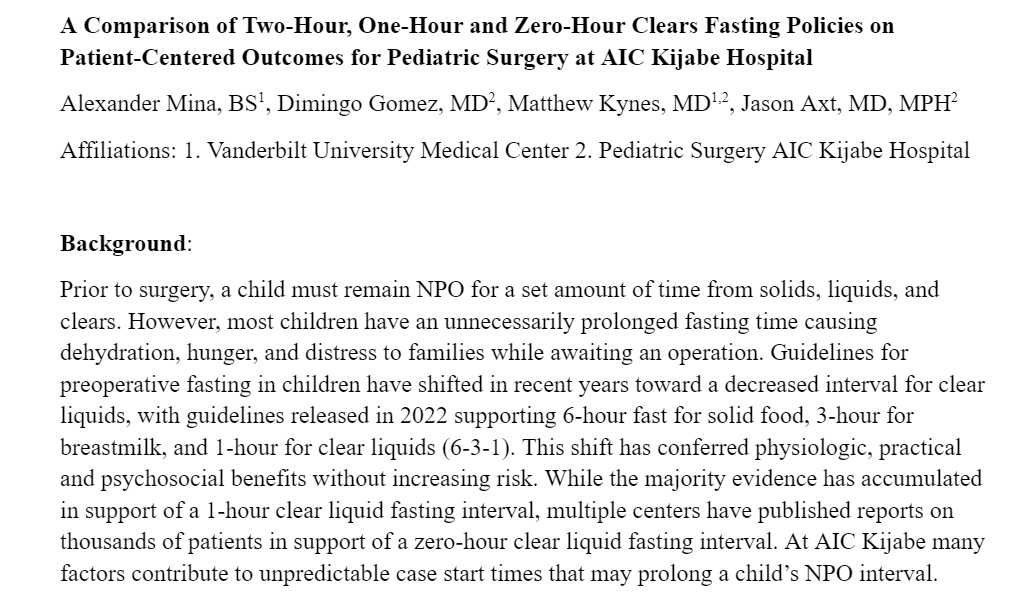
|
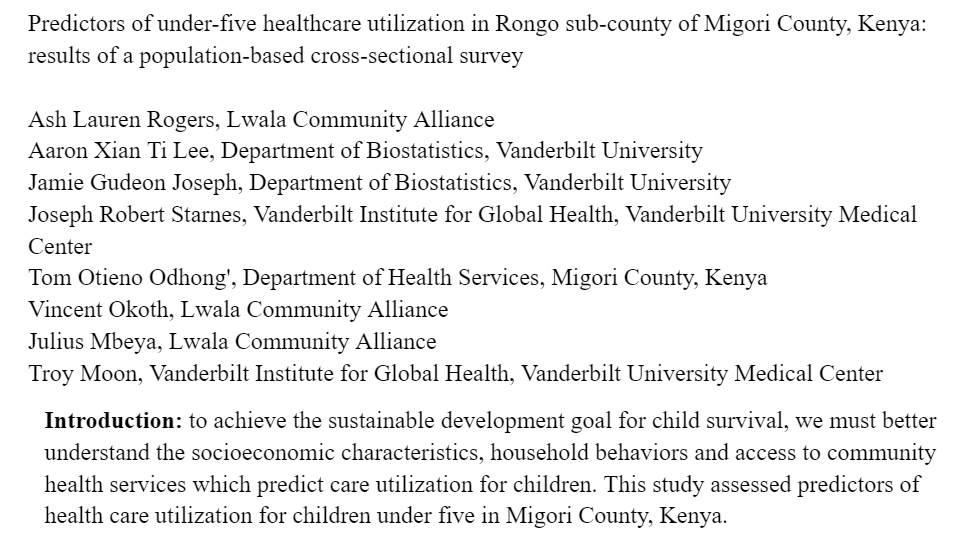
|
|
A Comparison of Two-Hour, One-Hour and Zero-Hour Clears Fasting Policies on Patient-Centered Outcomes for Pediatric Surgery at AIC Kijabe Hospital |
Predictors of under-five healthcare utilization in Rongo sub-county of Migori County, Kenya: results of a population-based cross-sectional survey |
|
Presenters: Alexander Mina , Dimingo Gomez, Matthew Kynes, Jason Axt |
Presenters: Ash Lauren Rogers, Aaron Xian Ti Lee, Jamie Gudeon Joseph, Joseph Robert Starnes, Tom Otieno Odhong, Vincent Okoth, Julius Mbeya, Troy Moon |
| View Abstract | |

|
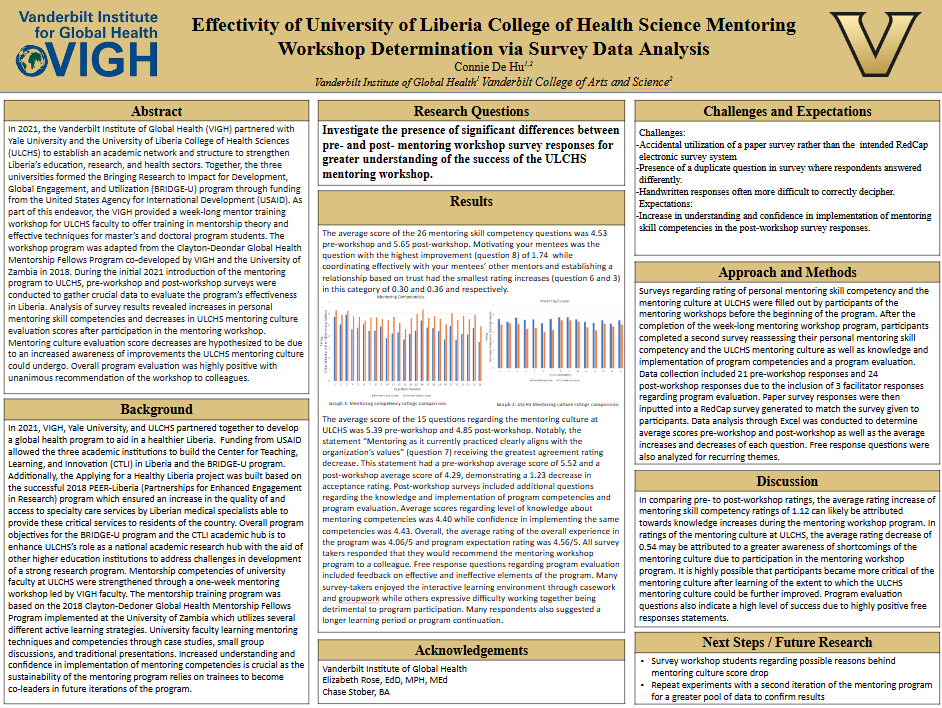
|
|
Global Nutrition through Course Development in the Age of COVID-19 |
Effectivity of University of Liberia College of Health Science Mentoring Workshop Determination via Survey Data Analysis |
|
Presenter: Calla Reed |
Presenters: Connie Hu |
| View Abstract | |
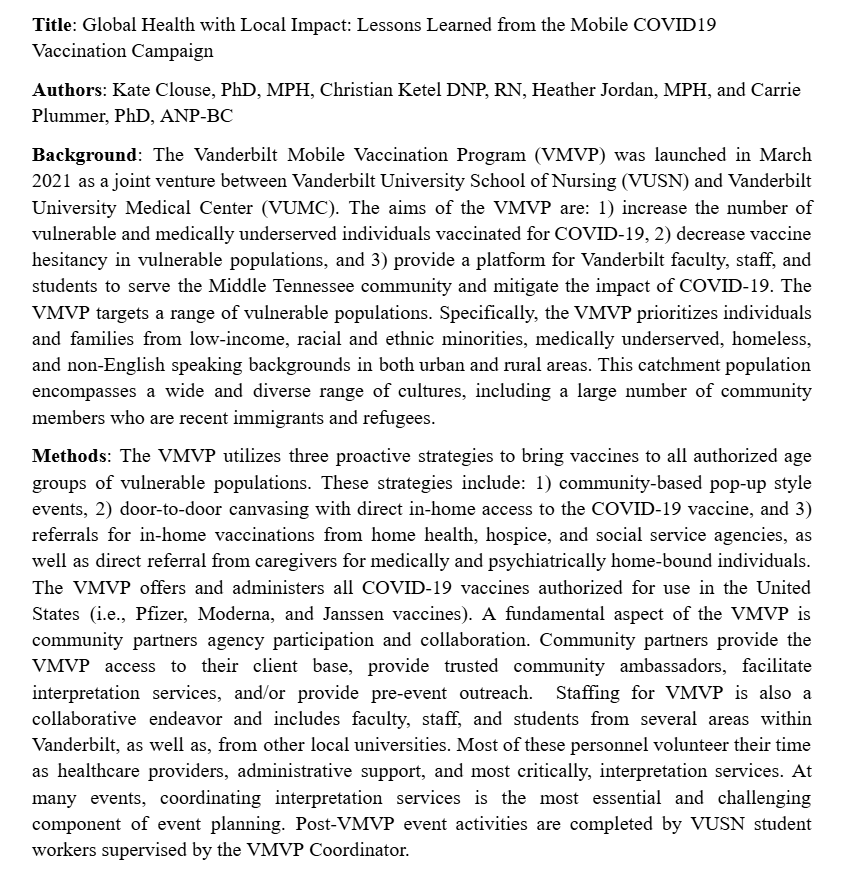
|
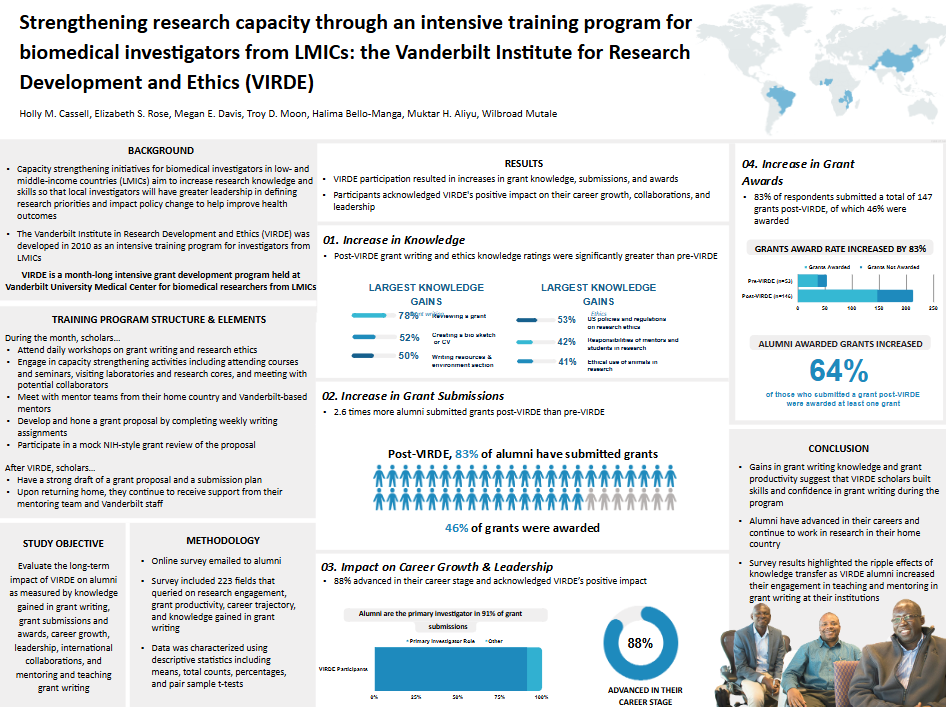
|
|
Global Health with Local Impact: Lessons Learned from the Mobile COVID19 Vaccination Campaign |
Strengthening research capacity through an intensive training program for biomedical investigators from low- and middle-income countries: The Vanderbilt Institute for Research Development and Ethics (VIRDE) |
|
Presenters: Heather Jordan, Kate Clouse, Christian Ketel, and Carrie Plummer |
Presenters: Holly M. Cassell, Elizabeth S. Rose, Megan E. Davis, Troy D. Moon, Halima Bello‐Manga, Muktar H. Aliyu, Wilbroad Mutale |
| View Abstract | |
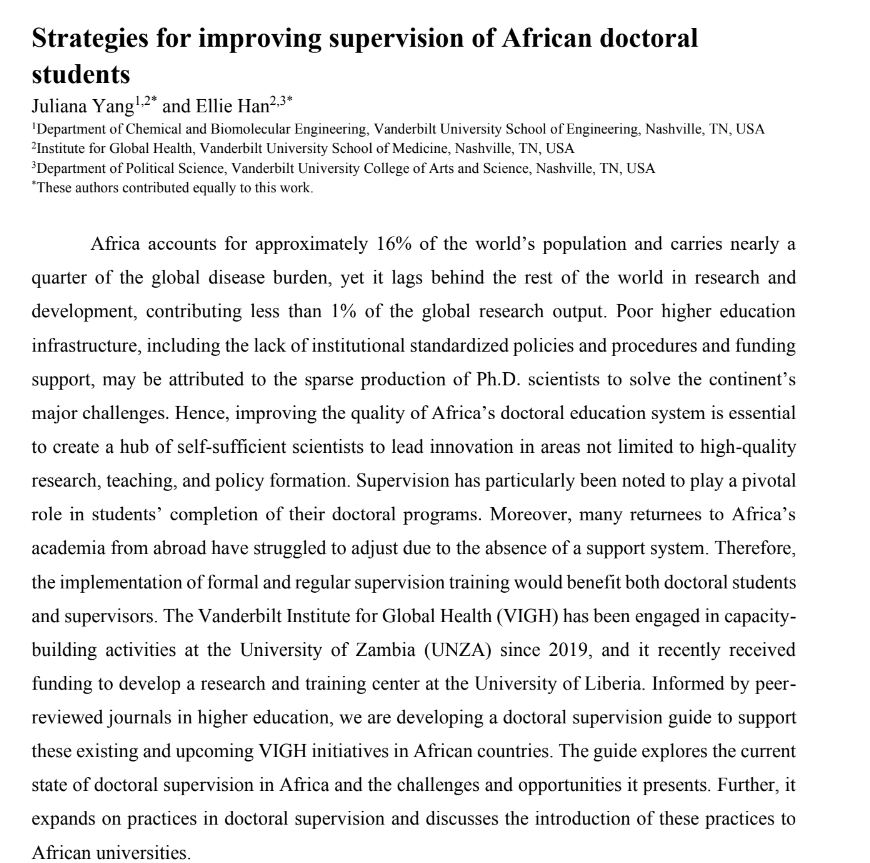
|
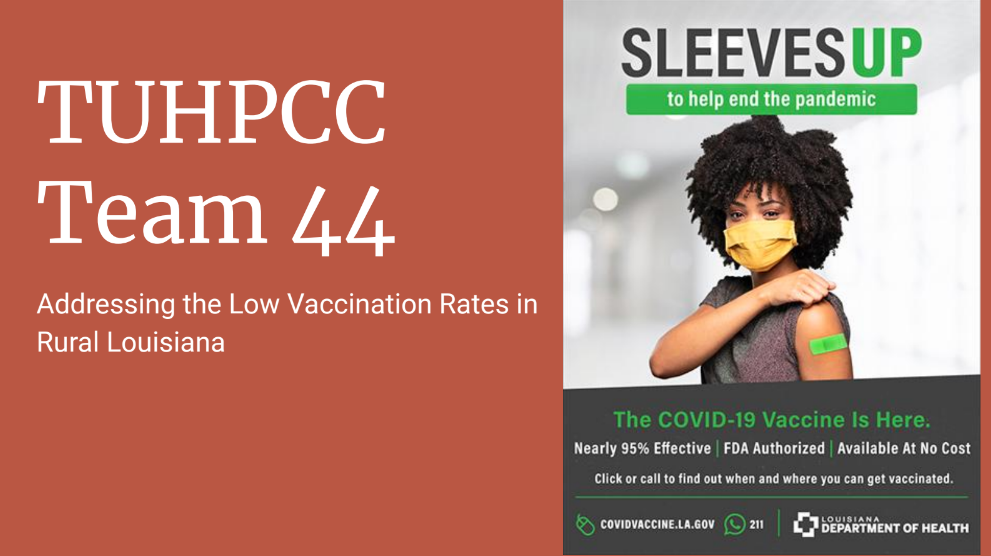
|
|
Strategies for improving supervision of African doctoral |
TUHPCC Team 44 Addressing the Low Vaccination Rates in Rural Louisiana |
|
Presenters: Juliana Yang and Ellie Han |
Presenters: Josanda Addo |
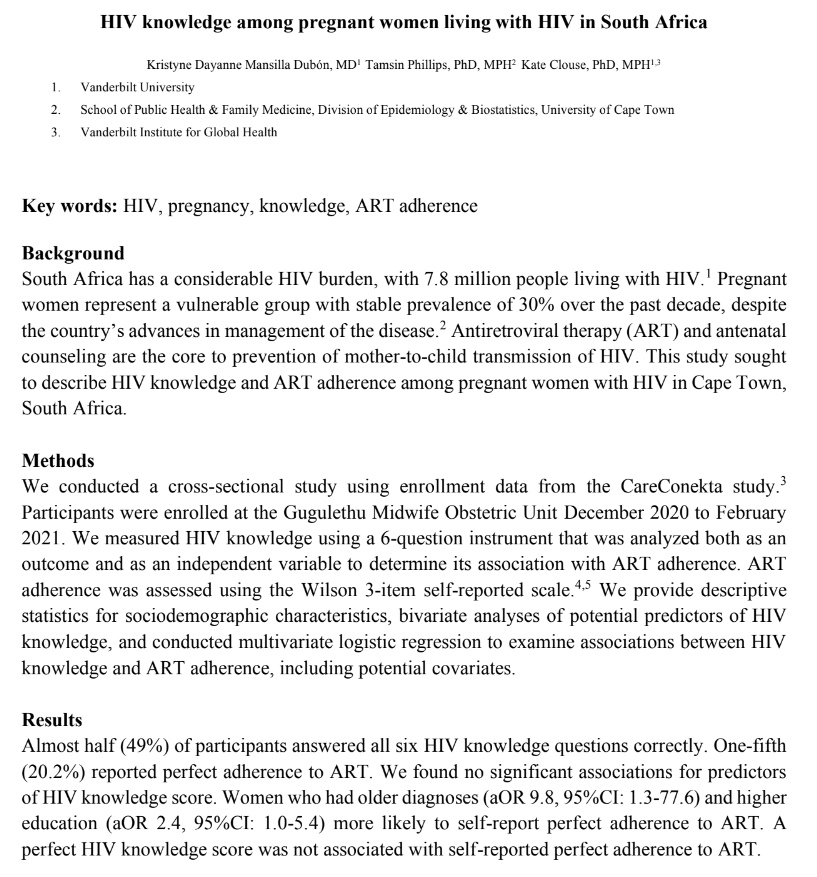
|

|
|
HIV knowledge among pregnant women living with HIV in South Africa |
Current Assessment of Suicide Research on Youth with Autism Spectrum Disorder |
|
Presenters: Kristyne Dayanne Mansilla Dubón, Tamsin Phillips, Kate Clouse |
Presenters: Kevin Nguyen, Patrick Ryan, Audrey Thurm, Lisa Horowitz, Paul Lipkin |
| View Abstract | |

|
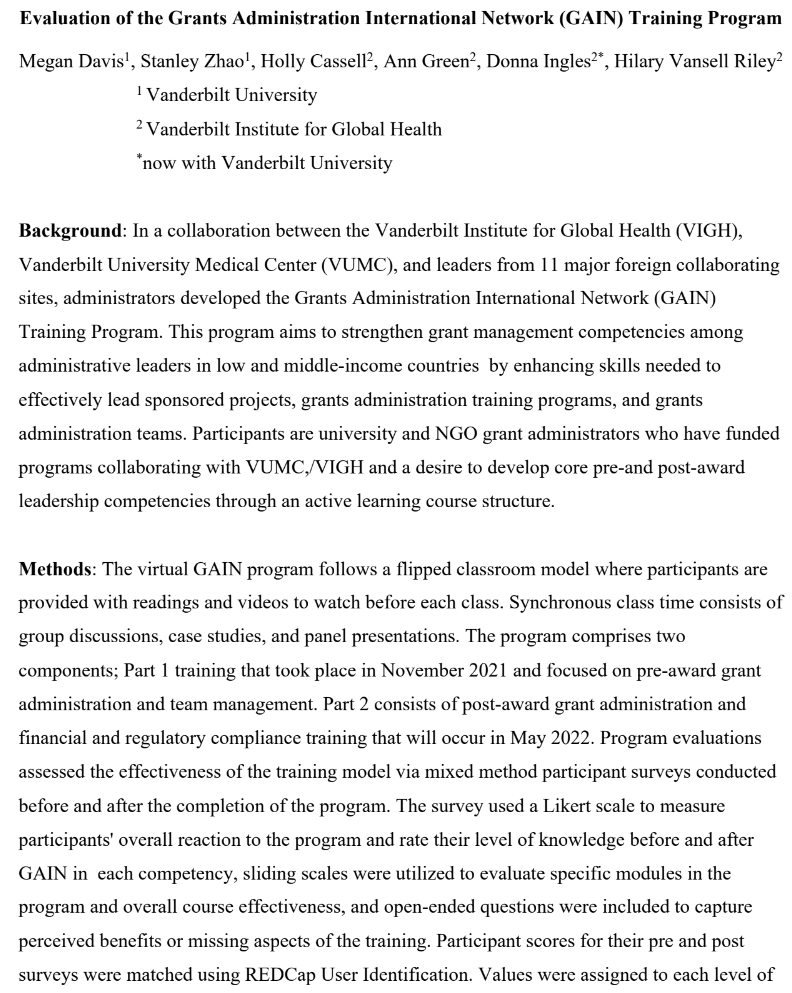
|
|
Strategies to address healthwork force support during a pandemic in Guatemala |
Evaluation of the Grants Administration International Network (GAIN) Training Program |
|
Presenters: Lorely Chavez,
Jacob Weinberg,
Anita Ndekezi,
Abigail Peterson, Sherard Stephens, Yasmina Haddad, Maria Jose Chajon |
Presenters: Megan Davis, Stanley Zhao, Holly Cassell, Ann Green, Donna Ingles, Hilary Vansell Riley |
| View Abstract | View Abstract |
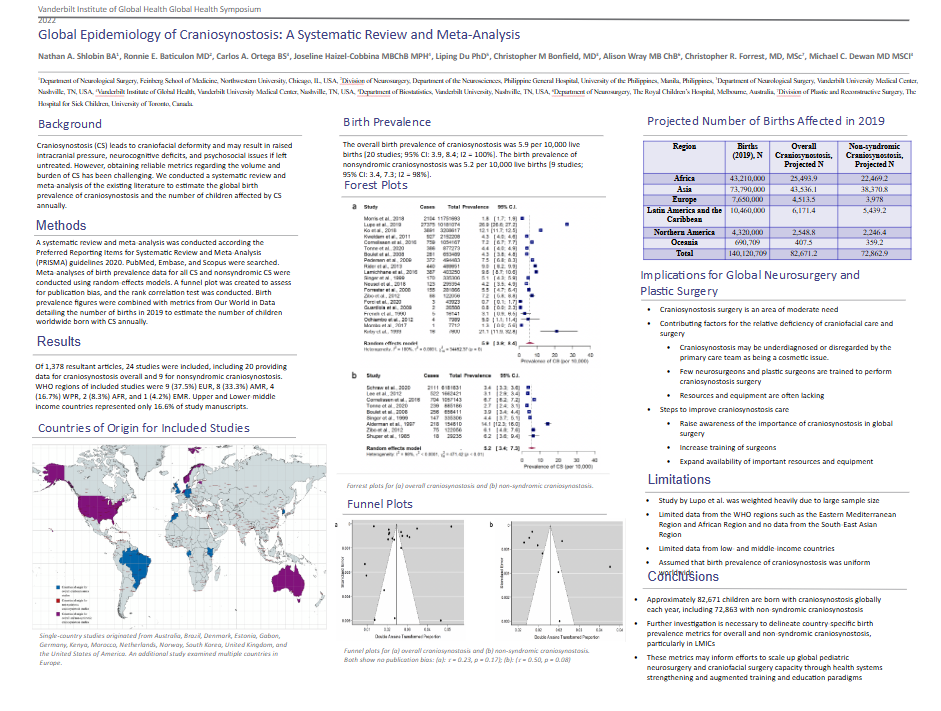
|
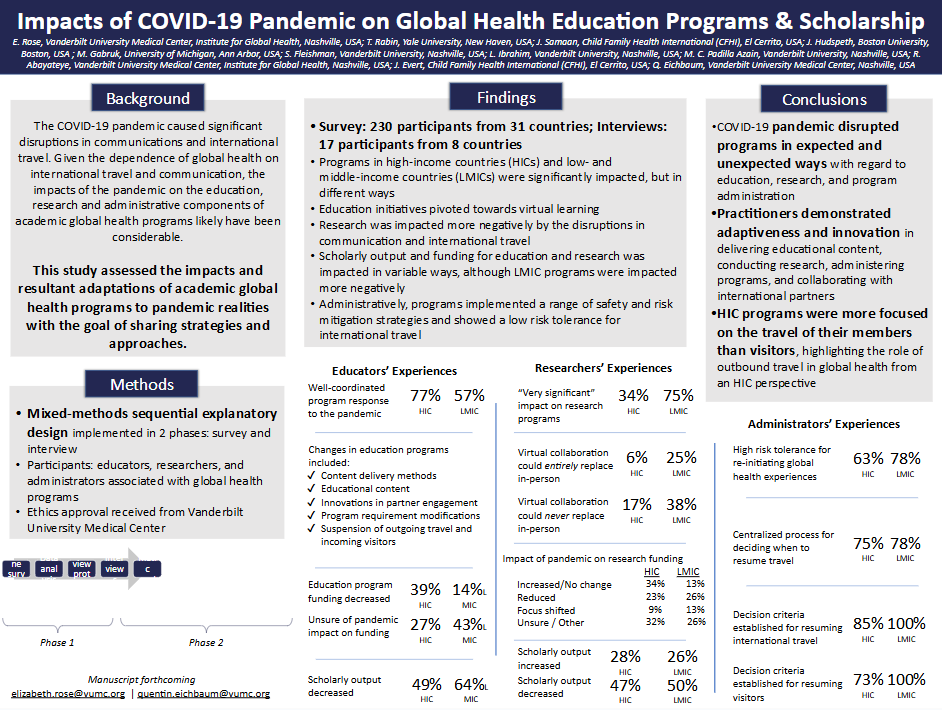
|
|
Global Epidemiology of Craniosynostosis: A Systematic Review and Meta-Analysis |
Impacts of COVID-19 Pandemic on Global Health Education Programs & Scholarship |
|
Presenters: Nathan A. Shlobin, Ronnie E. Baticulon, Carlos A. Ortega, Joseline Haizel-Cobbina, Liping Du, Christopher M Bonfield, Alison Wray, Christopher R. Forrest, Michael C. Dewan |
Presenters: Q. Eichbaum, E. Rose, T. Rabin, J. Samaan, J. Hudspeth, M. Gabruk, S. Fleishman, L. Ibrahim, M. C. Padilla Azain, R. Abayateye, J. Evert |
| View Abstract | |
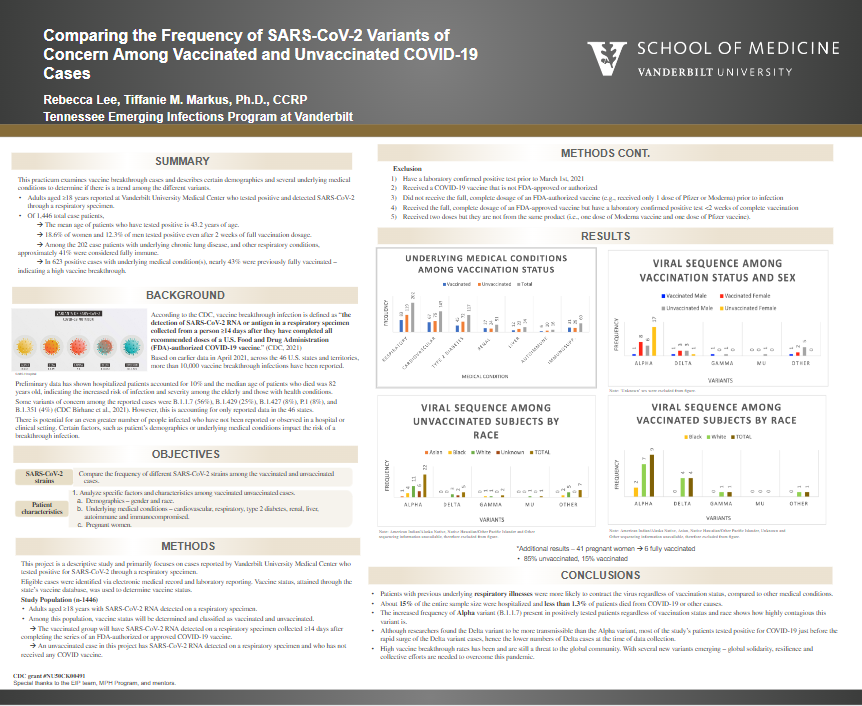
|
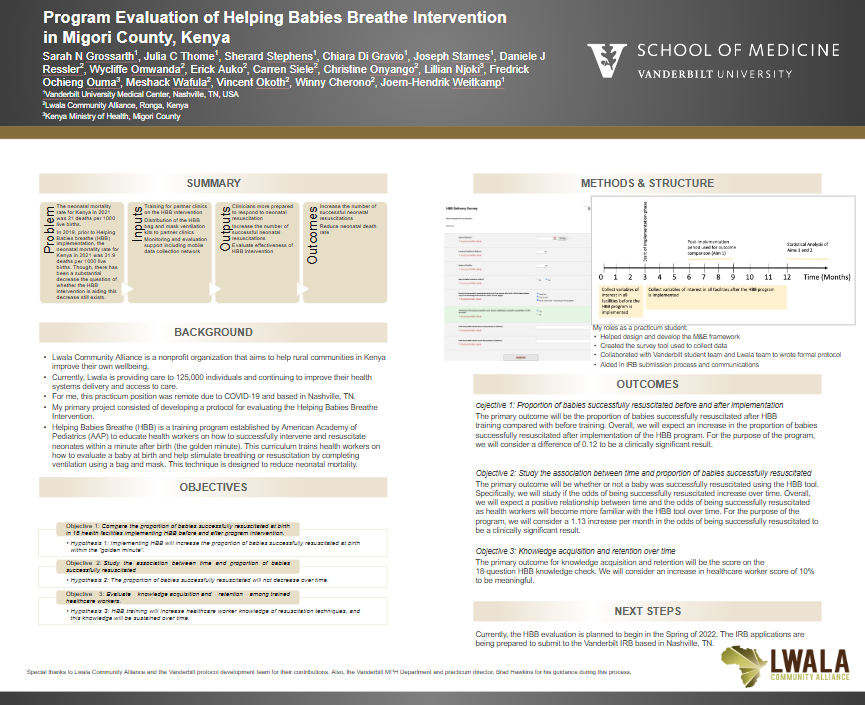
|
|
Comparing the Frequency of SARS-CoV-2 Variants of Concern Among Vaccinated and Unvaccinated COVID-19 Cases |
Program Evaluation of Helping Babies Breathe Intervention in Migori County, Kenya |
|
Presenters: Rebecca Lee and Tiffanie M. Markus |
Presenters: Sarah N Grossarth, Julia C Thome, Sherard Stephens, Chiara Di Gravio1, Joseph Starnes, Daniele J Ressler, Wycliffe Omwanda, Erick Auko, Carren Siele, Christine Onyango, Lillian Njoki, Fredrick Ochieng Ouma, Meshack Wafula, Vincent Okoth, Winny Cherono, Joern-Hendrik Weitkamp |
| View Abstract | View Abstract |
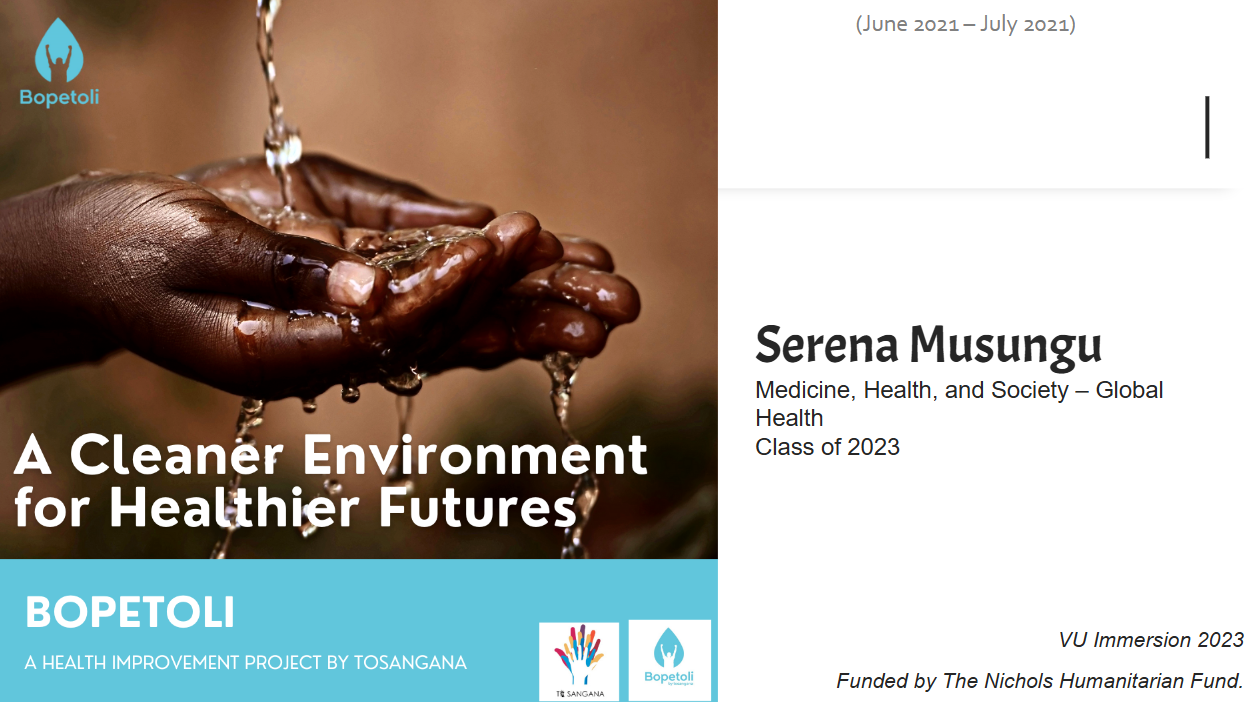
|
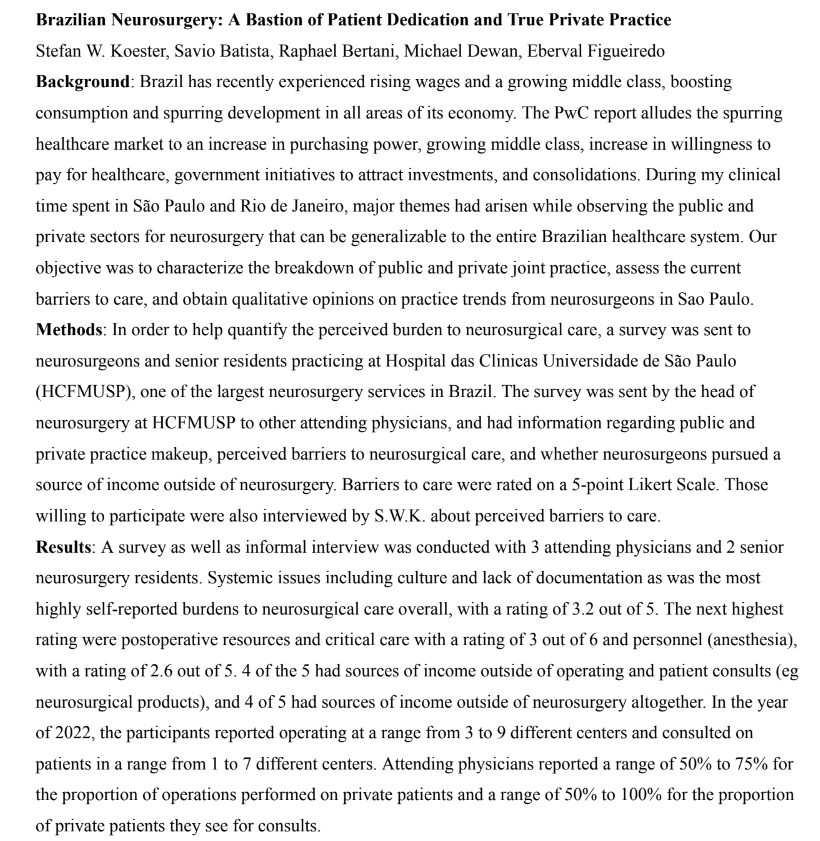
|
|
The Bopetoli Project |
Current State of Cerebrovascular Disease Epidemiology in the Global Pediatric Population |
|
Presenter: Serena Musungu |
Presenters: Stefan Koester, Nancy Abu-Bonsrah, Nathan Shlobin, Jeffrey Chen, Joseline Haizel-Cobbina, Michael Dewan |
| View Abstract | View Abstract |
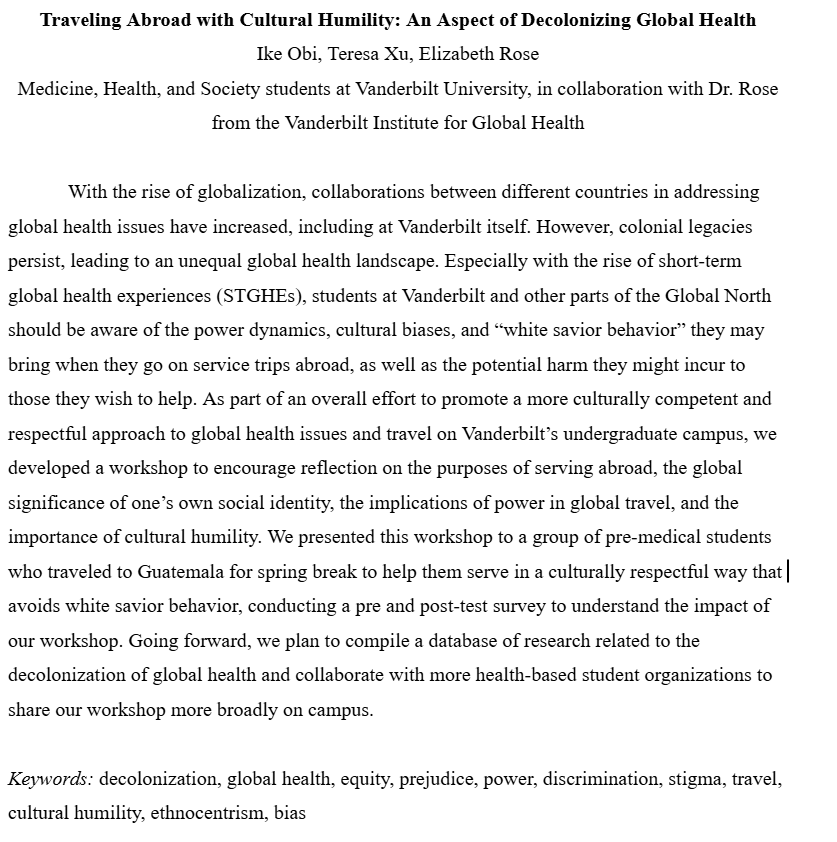
|
|
|
Traveling Abroad with Cultural Humility: An Aspect of Decolonizing Global Health |
|
|
Presenters: Teresa Xu, Ike Obi, Elizabeth Rose |
|
| View Abstract |
